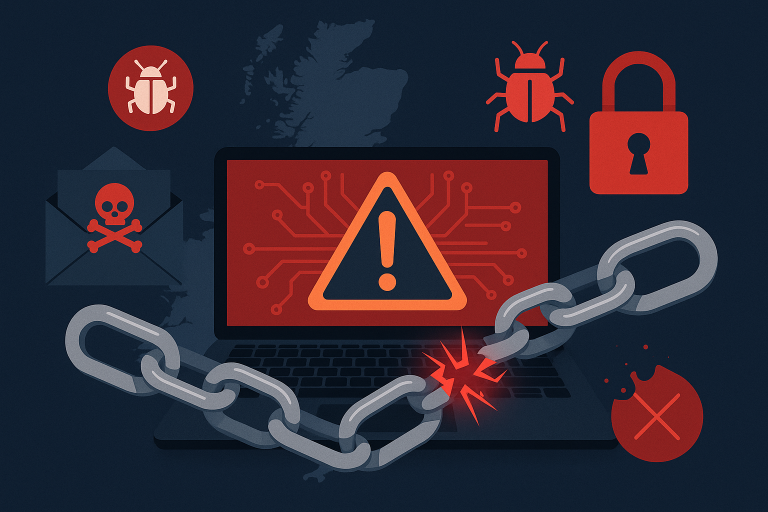A surge in high-impact cyberattacks targeting Britain’s critical infrastructure has prompted the government to introduce a long-anticipated legislative overhaul.
The Cyber Security and Resilience Bill, set to be tabled on Wednesday, aims to impose tighter regulations on companies supplying essential services, including those supporting the NHS and energy networks.
As the financial and operational fallout from recent attacks continues to mount, the government is shifting its strategy to focus not only on public institutions but also the private firms within their supply chains.
New law targets gaps in digital defences
The Cyber Security and Resilience Bill will apply to nearly 1,000 private-sector firms whose services are tightly integrated into the functioning of national infrastructure.
For the first time, companies providing digital or operational support to entities such as the NHS will be legally bound to adhere to new resilience requirements.
This expansion reflects a strategic shift, recognising that even the most fortified institutions can be undermined by vulnerabilities within their suppliers.
This approach follows growing evidence that attackers have increasingly exploited these secondary entry points.
Once the bill passes through Parliament, firms that fail to comply with the newly defined standards will face legal penalties, although specific sanctions have not yet been detailed.
Economic losses and rising attack volume
Recent data shows the scale of the cyber threat to the UK economy. Research published by the government on Wednesday places the annual cost of significant cyberattacks at £14.7 billion, equivalent to 0.5% of the nation’s GDP.
These figures underscore the urgency of implementing systemic protections, especially where interdependent systems across public and private sectors create broader points of failure.
The National Cyber Security Centre reported 204 nationally significant cyberattacks in the 12 months leading up to August 2025. This marked a sharp year-on-year increase.
The agency has warned that the threat landscape is evolving rapidly, with attackers employing more sophisticated tactics and aiming at targets where operational disruptions can cause immediate and cascading damage.
Healthcare and industry most affected
Some of the most damaging incidents have occurred in healthcare and automotive sectors. In 2024, a cyberattack on an NHS contractor caused thousands of appointment cancellations and was associated with the death of at least one patient.
This incident highlighted the real-world consequences of security breaches in critical services.
More recently, in August 2025, Jaguar Land Rover suffered a severe ransomware attack that halted production across its UK plants for over a month. The disruption cost the economy an estimated £1.9 billion.
The incident demonstrated that even companies with robust internal systems can be compromised when third-party access points are left inadequately protected.
Retailers have also been affected. Marks & Spencer Group Plc was among a string of businesses targeted during the summer.
While the details of each breach differ, the recurring pattern is clear: attackers are exploiting the extended digital ecosystem surrounding key institutions.
A recalibrated national security strategy
The introduction of the Cyber Security and Resilience Bill represents a recalibration of the UK’s broader national security approach.
The legislation has taken more than a year to reach this stage, but its unveiling reflects the government’s recognition that current protections are insufficient given the scale and complexity of modern threats.
Tech Secretary Liz Kendall described the bill as a message to adversaries that the UK is not an easy target.
The law aims to close existing regulatory gaps and extend accountability to firms whose operations may not be directly public-facing but are nonetheless integral to national resilience.
While the bill’s path through Parliament is still to be navigated, its release signals a shift in how digital infrastructure is managed at a national level.
No longer limited to core institutions, the UK’s cybersecurity strategy now incorporates the extended networks that enable those systems to function.
The post UK to impose tighten cyber laws after surge in high-impact attacks appeared first on Invezz

